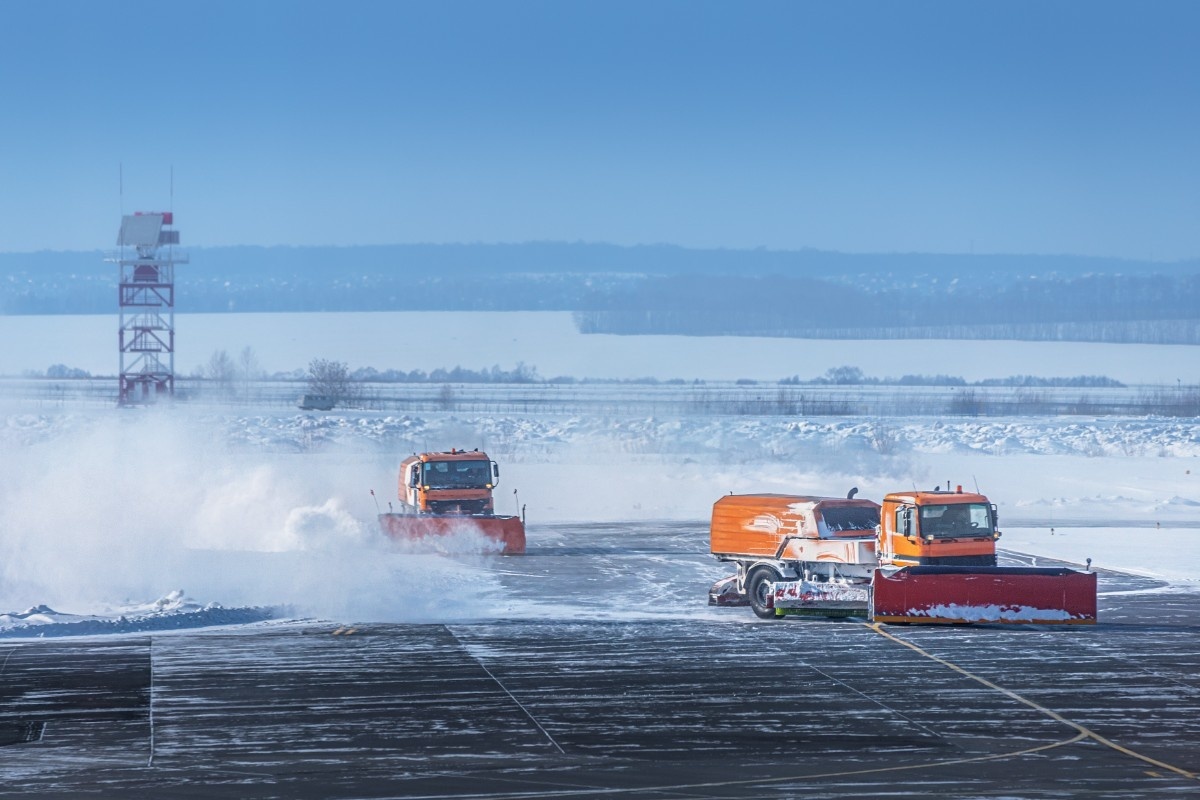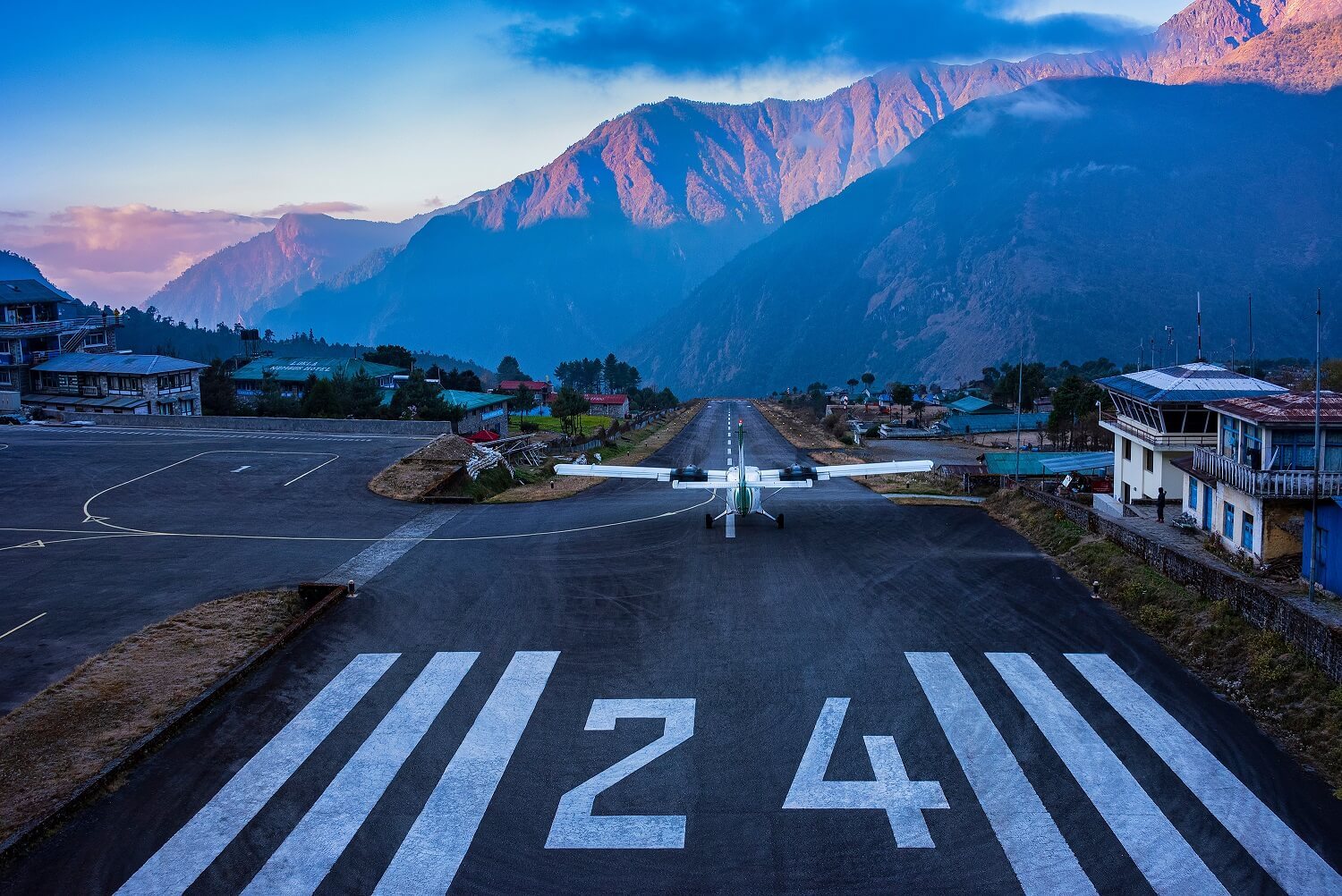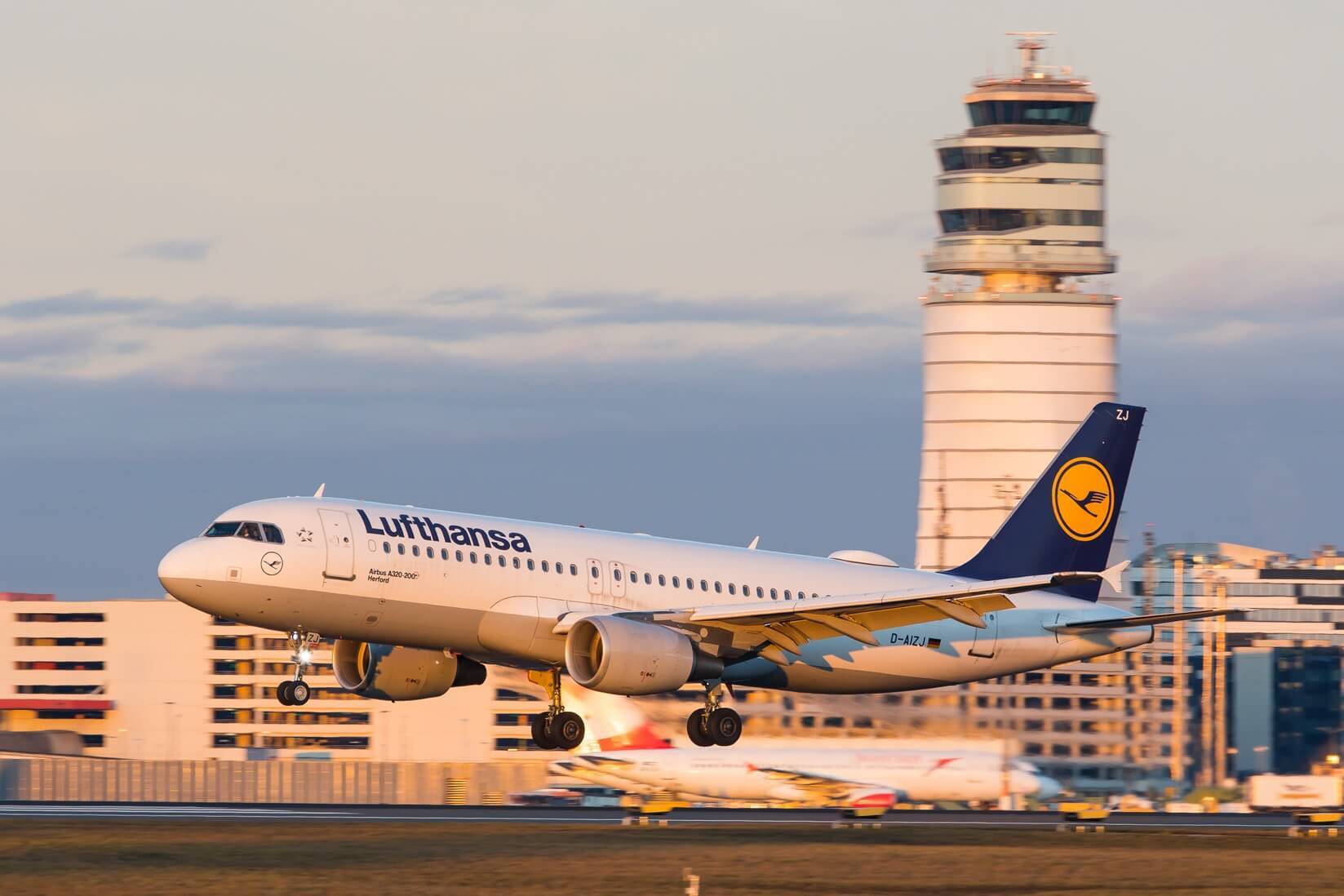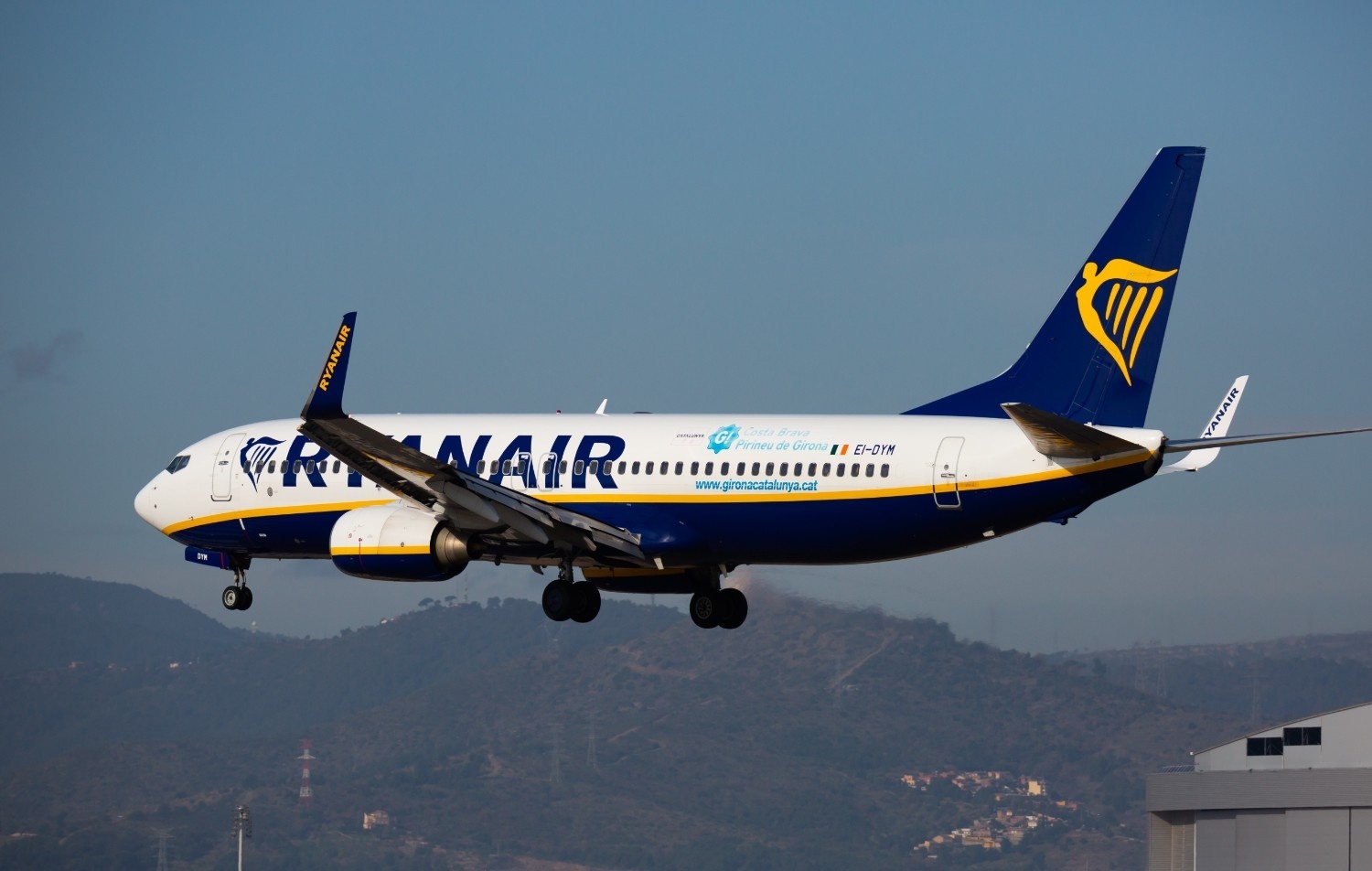How global events affect flights

Aviation is the critical backbone of global connections and travelling. However, it’s also just as highly sensitive, because of external factors. From natural disaster to political tensions, to global events that can significantly affect all flight operations, leading to many delays and cancellations. In this article we will get to know better how those extraordinary circumstances affect flights all across the world and help you to prepare and adapt to those unfortunate events.
Natural disasters
Hurricanes, earthquakes, volcanic eruptions and bad weather fall under the natural disaster category and are the most common reasons for flight disruptions.
Storms and hurricanes: Strong winds, lightning, and heavy rain can make takeoffs and landings quite challenging and unsafe. Airports in storm-prone regions often suspend flights entirely during extreme weather events.
Snowstorms and ice: Winter storms in regions like North America and Europe can result in runway closures and flight cancellations due to icy conditions and poor visibility.
Volcanic eruptions, such as Iceland’s Eyjafjallajökull eruption in 2010 and the recent Etna volcano eruptions, release ash clouds that can damage aircraft engines. Such events often lead to widespread flight cancellations, particularly in affected regions.
Global pandemics
The COVID-19 pandemic showed how public health crises can disrupt plane travelling on a massive scale.
Every country in the world closed boarders and placed people under quarantine. This led to a big reduction of not only international flights, but also domestic ones too.
Because of the pandemic, many airlines flew fewer flights, and in some regions, they stopped flying completely.
Crew and staff shortages
Many airline workers got sick or had to stay home, so a lot of flights were cancelled or delayed during the pandemic. Even when rules eased a little, there still weren’t enough people to keep everything running and on time.
Wars and armed conflicts
Conflict zones often have to close their airspace for safety. One example is the Russia-Ukraine conflict, since Ukraine had to close their airspace for safety reasons. This forced airlines to change routes of their flight that crossed the Ukrainian airspace.
Political problems in the Middle East have also caused a lot of flight issues.
Sanctions on countries can also stop airlines from using certain routes or airspace. This leads to fewer flights and sometimes even cancellations.
Terrorist threats
Security fears can cause airport evacuations and way tighter screening, which also leads to delays and cancellations of many flights.
Strikes by airline or airport staff, like pilots, cabin crew or ground workers, can really mess up the flight schedules. When these workers stop working, many flights can be disrupted one way or another, which also causes a lot of inconvenience for travellers.
Pilot and cabin crew strikes
When pilots or cabin crews go on strike, whole fleets may not fly at all. For example, Ryanair and Lufthansa previously faces big problems, because of those strikes.
Strikes by baggage handlers, maintenance crews, or even air traffic control can lead to many delays and cancellations.
When the economy is struggling, airlines may have trouble keeping everything running the way it should. Money might not be enough to get fuel, pay workers or fix planes. This can lead to flight disruptions and make travel more difficult for everyone.
Airline bankruptcies
Financial issues may force airlines to cancel flights, or worst-case scenario, file for bankruptcy. This affects passengers and causes issues with their tickets.
The changes in fuel prices can also force airlines to change routes or cancel flights. Airline sometimes try to even cut costs when fuel gets too expensive.
Large-scale events and infrastructure overload
Big events can overwhelm not only airlines, but also airports. One of those events could be arrival of a politics, diplomats and so on, big sports events and a few others.
Events like the Olympics or FIFA World Cup cause a surge in air travel. Recent example is the UEFA EURO 2024 in Germany, that caused airports congestions because of the many people travelling there to watch the games.
Events such as the Hajj pilgrimage to Mecca bring millions of people to one place. This can overload airport system and cause problems.
Power outages, IT system failures, or other technical issues at airports can stop operations. For example, recently London Heathrow had a massive IT problems that disrupted many flights.
Climate change and environmental factors
Extreme weather and long-term climate changes can affect air travel significantly.
Rising temperatures: Very high temperatures can reduce a plane’s performance during takeoff. This can cause weight restrictions and delays.
Sea level rise: Coastal airports face a higher risk of flooding. This can disrupt airport operations during storms or high tides.
Sustainability initiatives: Environmental protests or new policies can limit airport expansion and the number of flights. This can indirectly cause delays or cancellations.
Technological failures and cyberattacks
Most of the air travelling relies heavily on technology, for example booking tickets, checking in and controlling the planes. Sometimes those systems or machines break, even have glitches or even stop working completely. When this happens, flights can get delayed or cancelled, because the airlines can’t run its operations properly without the technology working.
Airline reservations and check-in systems can go down. One example of that is a British Airways IT failure in 2023, which led to the cancellation of hundreds of flights.
Cyberattacks on airlines, airports or air traffic control can disrupt the operations quite heavily. This leads to schedule disruptions.
Supply chain disruptions
The aviation industry needs many different suppliers to keep their flights up and running. They don’t just use planes and fuel. They also need spare parts, food and drinks for passengers, and even some tools to help handling the luggage. Many companies provide those items, and they work all together like a long chain. If one part of the chain has a problem, it slows down everything down the line and makes the flights run less smoothly.
Global shipping delays: Delays in delivering aircraft parts or fuel shortages can cancel or delay the flights.
Shortages of essential goods: Problems getting onboard catering or entertainment supplies can hurt passenger experience. These issues can affect flight scheduling.
Passenger tips
Travel insurance: Always have travel insurance to cover any unexpected problems.
Stay informed: Regularly check the news and airline updates before you get to travel.
Pack essentials: Keep the important items like medications, documents and a charge of clothes in your carry-on in case of delays.
Now that we discussed all global events, you are ready to tackle any issue coming your way when travelling with a plane. Airlines and airports are doing their best to reduce the issues with better planning and technology. Passengers can also take steps to be ready and flexible! Keep in mind that here at MYFLYRIGHT we are always ready to help you with your compensation in cases of flight disruptions!
Latest posts
Flight delays and cancellations in August 2025
Check which flights were delayed in August 2025 – you may still be entitled to claim up to 600 € in compensation.
Flight delays and cancellations in July 2025
Check which flights were delayed in July 2025 – you may still be entitled to claim up to 600 € in compensation.
Flight cancellations and delays in March 2024
Check which flights were delayed in March 2024 – you may still be entitled to claim up to 600 € in compensation.












